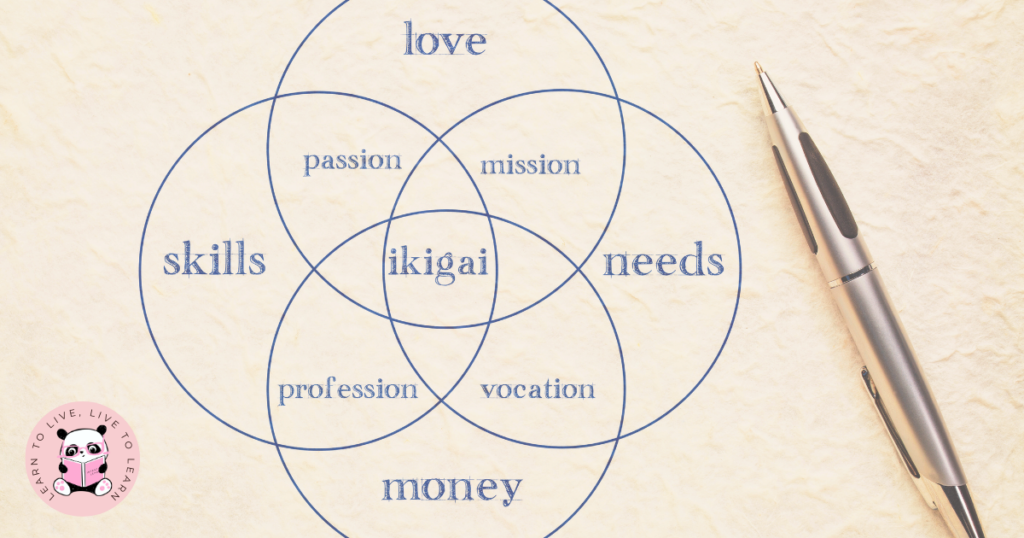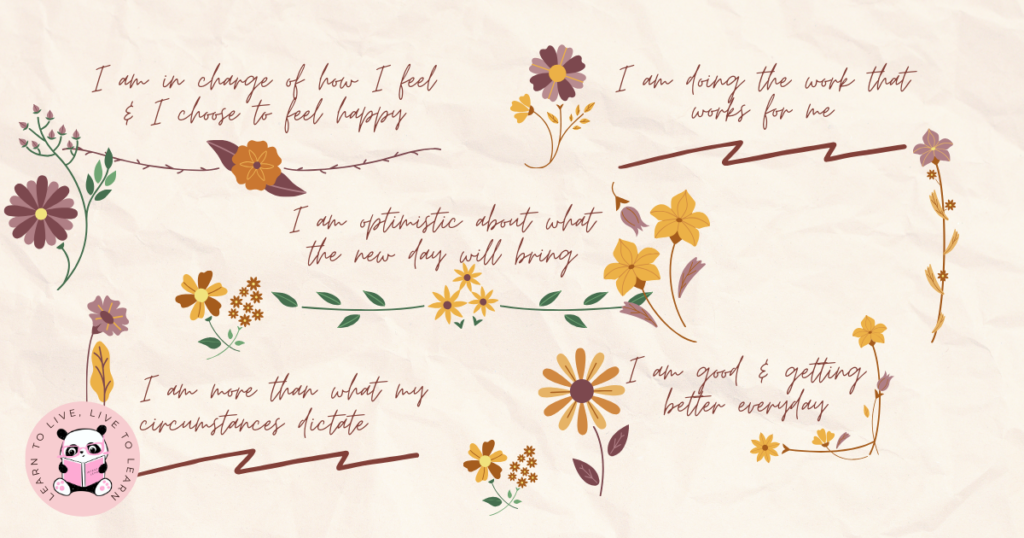What Is Ikigai: Wisdom For A Fulfilling Life
Written by Michelle Ong | April 21, 2024 | Growth, Wellness

Discover how you can integrate ikigai into your everyday routine and way of living to experience personal growth and fulfillment.
Have you ever heard of ikigai? It’s a Japanese concept with a widely known reference to finding purpose and meaning in one’s life. Maybe you’ve heard people talk about it but aren’t quite sure what it means, how it relates to growth and fulfillment, or how it can make your life better. This article lays out what ikigai is in simple terms, helping you discover what truly brings you joy and purpose. It also serves as a guide on how you can incorporate this philosophy in your life, making it more fulfilling and happy. So, let’s explore how you can start living your best life with ikigai!
What Is Ikigai ?
Ikigai, a Japanese term, means doing something that brings value and happiness to your life, making each day worthwhile. Something worthwhile does not necessarily mean achieving big goals. It can also be about finding joy in the little things in life. Making someone smile, small acts that make you or others happy, or contributing to the greater good can all be considered your ikigai. Its literal meaning is doing things that makes you feel fulfilled and brings meaning to your life.
Ikigai = One True Purpose In Life?
Ikigai has become a buzzword for finding our life’s purpose, suggesting that everyone has a unique purpose in life, and discovering it will make us feel that life has meaning. There’s a well-known analogy likening life to riding a bicycle. Just as one must keep pedaling to maintain balance, so too must we persist in our efforts to navigate the complexities of existence and understand our purpose.

It’s said that a meaningful purpose is something that satisfies these four areas: passion, vocation, mission, and profession. In other words, knowing what we are good at, what we enjoy and inspires us, and what helps society while earning a living. It makes sense because knowing what we want, what our goals are can help motivate us. So it naturally follows that this concept theoretically increases our chances of finding meaning and fulfillment. But it also implies that if we can’t find this calling, we will struggle and feel unsatisfied with life.
Ikigai Can Evolve Over Time
Some people may interpret ikigai as a single unchanging purpose in life. That it’s one specific thing we have to figure out to become happy and fulfilled. But that might not necessarily be true for everyone. What makes us happy can change over time or based on our life circumstances. We might think there’s one thing we absolutely have to do to feel fulfilled at a particular moment in time. But what happens after we have done it? We might feel happy and fulfilled for a while, but that feeling won’t last forever.
What are we going to do after that? What happens if one day we grow weary of our pursuit? Does it render all the effort and time invested wasted? Is it realistic to expect that dedicating our life to a single purpose guarantees eternal meaning and fulfillment? Why can’t we have more than one ikigai, multiple things that bring you joy and fulfillment? Life is multi-faceted and our ikigai could reflect this dynamic nature by evolving alongside changing life circumstances and accommodating personal growth.
Ikigai = Self-expression
Ikigai is about self-expression and what brings you joy and fulfillment, and can be found in the simplest moments of daily life. Think about those little things that make life feel good—whether it’s enjoying a quiet morning coffee, taking a walk in nature, helping a friend, or even just reading a good book. These everyday moments, often overlooked, are what make life meaningful.
There’s no universal list of what makes us happy—everyone’s ikigai is unique, in their own way. By recognizing and valuing these small joys, we can become more mindful, focusing on what truly brings happiness and fulfillment to our life.
Ikigai In Daily Life
In a general sense, ikigai can be discovered in the simple, everyday activities we engage in. Here are some common examples to illustrate how we can find ikigai in our daily life. These are not extraordinary achievements but rather ordinary moments that can bring fulfillment and purpose. Compile a list of such activities, considering different aspects of your life. You can use the wheel of life as a reference for the eight broad areas of life, and note down “ikigai activities” under each area.

- Morning Routine: Starting the day with a cup of coffee or tea while enjoying the sunrise, setting a positive tone for the day ahead.
- Cooking: Preparing a delicious meal for yourself or loved ones, finding joy in the process of creating something nourishing and tasty.
- Exercise: Going for a morning jog or practicing yoga, connecting with your body and mind while improving your health.
- Gardening: Spending time tending to your garden, nurturing plants and flowers, and finding fulfillment in watching them grow.
- Reading: Immersing yourself in a good book, exploring different worlds, and gaining new knowledge or insights.
- Music: Playing an instrument or listening to your favorite songs, finding solace and joy in the melodies and rhythms.
- Art: Painting, drawing, or crafting, expressing yourself creatively and finding fulfillment in the process of creation.
- Volunteering: Helping out at a local charity or community organization, making a positive impact on others’ lives and feeling a sense of fulfillment.
- Writing: Keeping a journal, writing poetry, or blogging about your experiences and thoughts, finding catharsis and clarity through self-expression.
- Spending Time with Loved Ones: Having meaningful conversations with family and friends, sharing laughter and creating cherished memories together.
What Is Your Ikigai ?
Understanding what ikigai is and its transformative potential is the first step to discovering your own. To begin, focus on cultivating mindfulness and self-awareness. Keep a journal to reflect daily on what truly matters—note down what you enjoy, what brings you contentment, and what feels important. Pay attention to the little things, like chatting with a friend over tea or taking a peaceful walk in nature. Most importantly, don’t rush the process. Your ikigai will reveal itself in time.
Wondering how you can define your ikigai? Check out this post to explore how you can start your journey.
Like what you are reading? Pin & share this post with your family and friends and follow me on Pinterest for more daily inspiration!


